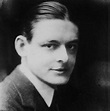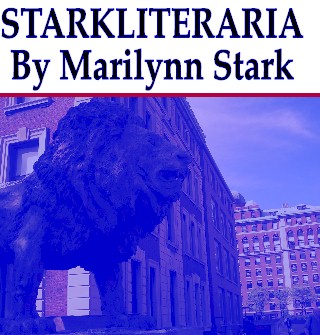
By Marilynn Stark
Preface
In keeping with the personal welcome rendered you, my readers, in the home page dedication on your behalf, it seems most fitting to render an extension of that personal spirit so intended. For such a welcome may be offered in words, but then, how much more persuasion will be requisite to actually win you over to the sincerity of intent and the reality of substantial purpose which that welcome actually means from myself to you. For if words besides scholarship are to be effective as a tool of persuasion in the quest of any author in any given forum, then to substantiate them for their sincerity in greater deed would certainly foment therein the understanding of purpose. What is the purpose of writing if there can be no result from that which is written? Yes, to selflessly open the hand of creation’s urge to none but the paper in front of the author is the inner secret of great writing. Truth as audience, truth as teller, truth as giver, and truth as receiver are all that should foster the growth and development of a writer. Let not the results of that which was written be incumbent upon the mind for measure through the eyes of others — not as of yet. Forsooth, the sacred creation of literary art rests upon truth. The creation of all that might flow from the pen is already sanctified in the event of its arrival from certain depths akin to the soul. Some loss of persuasion matters not, wherein there may be no one else to persuade, if within the cocoon of truth formed  by the writer’s weaving of words there lies the chrysalis of future wings to winnings of yeasayers in a world now made receptive to truth. This observation, furthermore, only follows from a secondary realization. Consider that all is secondary at least to the driven mind in saying what must be said when a writer begins a long journey to satiate the telling of it all, the declaring of that which cannot be left undeclared. The one who has such profound privy to the sancta sanctorum of the absolute value of writing words to convey a message and lend clearer meaning to that message alone knows the irrelevance that anyone else might agree or appreciate the say-so. For indeed, it is at times the lack of recognition of truth which impels the writer to state that truth. If there does arrive one or a few who should appreciate the message so given and even learn from it, then a separate purpose has been achieved. Nevertheless, it would have seemed that to persuade such people in the first place would have been presumptive to the act of writing. When words, however, summon forth the inmost calling of a writer, who is seasoned or not, the event of writing transcends all barriers. The process of writing is a venerable fusion of self with the truth of what is being said. The product becomes and may remain in a position inferior to that of the event and the process which motivate the writer, at least momentarily. Yet, even as truth may have the potential to lend exhortation to others, so is the truth to be told in language for other ears; and this nature of the will to state and so share truth becomes a first fundamental which remains as a paradox to one who is caught in the throes of artistic development. It is the ego-less venture to let truth speak above all, including recognition for that truth as having emanated from author’s hold; and this venture creates the writer in you. Then, in the like say of time itself, may the golden path to a realization that the words of authoring’s way have made their impact find its own more ultimate place; indeed, may this outcome simply fill the glad heart of the true writer once the time has come that these words have been finally heard. For the path to that moment of recognition and sense of fulfilled purpose had all along fused as well with such a golden goal, even as that goal were seemingly in recumbent mode.
by the writer’s weaving of words there lies the chrysalis of future wings to winnings of yeasayers in a world now made receptive to truth. This observation, furthermore, only follows from a secondary realization. Consider that all is secondary at least to the driven mind in saying what must be said when a writer begins a long journey to satiate the telling of it all, the declaring of that which cannot be left undeclared. The one who has such profound privy to the sancta sanctorum of the absolute value of writing words to convey a message and lend clearer meaning to that message alone knows the irrelevance that anyone else might agree or appreciate the say-so. For indeed, it is at times the lack of recognition of truth which impels the writer to state that truth. If there does arrive one or a few who should appreciate the message so given and even learn from it, then a separate purpose has been achieved. Nevertheless, it would have seemed that to persuade such people in the first place would have been presumptive to the act of writing. When words, however, summon forth the inmost calling of a writer, who is seasoned or not, the event of writing transcends all barriers. The process of writing is a venerable fusion of self with the truth of what is being said. The product becomes and may remain in a position inferior to that of the event and the process which motivate the writer, at least momentarily. Yet, even as truth may have the potential to lend exhortation to others, so is the truth to be told in language for other ears; and this nature of the will to state and so share truth becomes a first fundamental which remains as a paradox to one who is caught in the throes of artistic development. It is the ego-less venture to let truth speak above all, including recognition for that truth as having emanated from author’s hold; and this venture creates the writer in you. Then, in the like say of time itself, may the golden path to a realization that the words of authoring’s way have made their impact find its own more ultimate place; indeed, may this outcome simply fill the glad heart of the true writer once the time has come that these words have been finally heard. For the path to that moment of recognition and sense of fulfilled purpose had all along fused as well with such a golden goal, even as that goal were seemingly in recumbent mode.
In the act of reading a writer’s work there is a certain nexus which assumes the role of teaching although not only of the message intended does it teach. Clearly, if that one who sits and muses and stops and starts at writing were to see past the spaces in between words more often and more completely somehow, then a whole new message could be given, as well. However, that message would be from within the heart and not as descried through the passage into the heart by the words of an author of external source and moorings. What if, for instance, such a one as who can see past that which the writer says were to thereby learn as well how to write? Certainly, that is a larger task than the average reader will ever conduct successfully if at all; yet, that is also the way in which authors become themselves authors. Much like a universal conversation, writing spawns writing. Words echo in memory. Words may call up the mind to imitate a certain mode of saying or a certain thread of veracity’s centering power. For each aspiring writer who may only aspire but for a point alone or for a narrow task at hand — let alone conquer in the stacks of the annals of the accomplished ones elected to collect dust for posterity’s sake — writing and reading have the power and presence to center the mind to the heart and to recruit the heart then again to the mind.

T.S.Eliot
Thus, allow me, please, to introduce herein a poet emeritus who had helped to form my own literary solidarity in the way of becoming a more serious and dedicated writer. This would certainly hold a special interest for me, and I would like to share it with you.
T.S. Eliot Unravels
LET us go then, you and I,
When the evening is spread out against the sky
Like a patient etherised upon a table;
From “The Love Song of J. Alfred Prufrock” by T.S. Eliot
So begins “The Love Song of J. Alfred Prufrock,” by the great T.S. Eliot. Do not take his sheer name for granted, for indeed, this character does put forth a cogent invitation to enter into a view of the world — his own. If the rock of modern civilization and its very culture is to be rendered for review and thus proofed for its own validation, then this musing character will be the one to perform such a task — though almost implicitly — even despite any namesake identity: ‘proof-rock.’ The poet-creator of the hapless town crier in Prufrock, however, might pretend only teleologically to being as explicit as a poet might be. This pretension overturns the observer’s conclusion that such astute conceit as utilized lavishly by the pen of Eliot in creating Prufrock and in portraying Prufrock’s dilemma could not be reduced indeed to graphically-posed truths. It is as if in following the path created by Eliot to the predestined character born in Prufrock, one looks for stepping stones along the way in avid search. Yet, one is only to find that a stepping stone once descried had fused into a continuous walkway in a process unbeknownst to the reader until perception had been retroactivated upon the imagery. Verily, this is the mastery of Eliot. He calls in as if declaratory might be his verbiage, and this only if parsing those poesies expressed could undo the plies of reality placed upon a perception platform for the reader’s use. Thus is his challenge posed and met after the fact, seemingly, of apprehension’s bold mentorship. In this literary excellence would Eliot invite, therefore, not singularly through Prufrock but collectively for all of his say as writer across the spectrum of his entire works. For the portal of Prufrock’s gesture that the world needs review will open unto the most profound literature if the reader is receptive to a giant who looms over the rest of his ilk — T.S. Eliot.

The Love Song of J. Alfred Prufrock
T. S. Eliot 1888 – 1965
S’io credesse che mia risposta fosse
A persona che mai tornasse al mondo,
Questa fiamma staria senza piu scosse.
Ma perciocche giammai di questo fondo
Non torno vivo alcun, s’i’odo il vero,
Senza tema d’infamia ti rispondo.
Let us go then, you and I,
When the evening is spread out against the sky
Like a patient etherized upon a table;
Let us go, through certain half-deserted streets,
The muttering retreats
Of restless nights in one-night cheap hotels
And sawdust restaurants with oyster-shells:
Streets that follow like a tedious argument
Of insidious intent
To lead you to an overwhelming question…
Oh, do not ask, “What is it?”
Let us go and make our visit.
In the room the women come and go
Talking of Michelangelo.
The yellow fog that rubs its back upon the window-panes,
The yellow smoke that rubs its muzzle on the window-panes
Licked its tongue into the corners of the evening,
Lingered upon the pools that stand in drains,
Let fall upon its back the soot that falls from chimneys,
Slipped by the terrace, made a sudden leap,
And seeing that it was a soft October night,
Curled once about the house, and fell asleep.
And indeed there will be time
For the yellow smoke that slides along the street,
Rubbing its back upon the window-panes;
There will be time, there will be time
To prepare a face to meet the faces that you meet;
There will be time to murder and create,
And time for all the works and days of hands
That lift and drop a question on your plate;
Time for you and time for me,
And time yet for a hundred indecisions,
And for a hundred visions and revisions,
Before the taking of a toast and tea.
In the room the women come and go
Talking of Michelangelo.
And indeed there will be time
To wonder, “Do I dare?” and, “Do I dare?”
Time to turn back and descend the stair,
With a bald spot in the middle of my hair—
[They will say: “How his hair is growing thin!”]
My morning coat, my collar mounting firmly to the chin,
My necktie rich and modest, but asserted by a simple pin—
[They will say: “But how his arms and legs are thin!”]
Do I dare
Disturb the universe?
In a minute there is time
For decisions and revisions which a minute will reverse.
For I have known them all already, known them all—
Have known the evenings, mornings, afternoons,
I have measured out my life with coffee spoons;
I know the voices dying with a dying fall
Beneath the music from a farther room.
So how should I presume?
And I have known the eyes already, known them all—
The eyes that fix you in a formulated phrase,
And when I am formulated, sprawling on a pin,
When I am pinned and wriggling on the wall,
Then how should I begin
To spit out all the butt-ends of my days and ways?
And how should I presume?
And I have known the arms already, known them all—
Arms that are braceleted and white and bare
[But in the lamplight, downed with light brown hair!]
Is it perfume from a dress
That makes me so digress?
Arms that lie along a table, or wrap about a shawl.
And should I then presume?
And how should I begin?
. . . . .
Shall I say, I have gone at dusk through narrow streets
And watched the smoke that rises from the pipes
Of lonely men in shirt-sleeves, leaning out of windows? …
I should have been a pair of ragged claws
Scuttling across the floors of silent seas.
. . . . .
And the afternoon, the evening, sleeps so peacefully!
Smoothed by long fingers,
Asleep… tired… or it malingers,
Stretched on the floor, here beside you and me.
Should I, after tea and cakes and ices,
Have the strength to force the moment to its crisis?
But though I have wept and fasted, wept and prayed,
Though I have seen my head [grown slightly bald] brought in upon a platter,
I am no prophet—and here’s no great matter;
I have seen the moment of my greatness flicker,
And I have seen the eternal Footman hold my coat, and snicker,
And in short, I was afraid.
And would it have been worth it, after all,
After the cups, the marmalade, the tea,
Among the porcelain, among some talk of you and me,
Would it have been worth while,
To have bitten off the matter with a smile,
To have squeezed the universe into a ball
To roll it toward some overwhelming question,
To say: “I am Lazarus, come from the dead,
Come back to tell you all, I shall tell you all”—
If one, settling a pillow by her head,
Should say: “That is not what I meant at all.
That is not it, at all.”
And would it have been worth it, after all,
Would it have been worth while,
After the sunsets and the dooryards and the sprinkled streets,
After the novels, after the teacups, after the skirts that trail along the floor—
And this, and so much more?—
It is impossible to say just what I mean!
But as if a magic lantern threw the nerves in patterns on a screen:
Would it have been worth while
If one, settling a pillow or throwing off a shawl,
And turning toward the window, should say:
“That is not it at all,
That is not what I meant, at all.”
. . . . .
No! I am not Prince Hamlet, nor was meant to be;
Am an attendant lord, one that will do
To swell a progress, start a scene or two,
Advise the prince; no doubt, an easy tool,
Deferential, glad to be of use,
Politic, cautious, and meticulous;
Full of high sentence, but a bit obtuse;
At times, indeed, almost ridiculous—
Almost, at times, the Fool.
I grow old… I grow old…
I shall wear the bottoms of my trousers rolled.
Shall I part my hair behind? Do I dare to eat a peach?
I shall wear white flannel trousers, and walk upon the beach.
I have heard the mermaids singing, each to each.
I do not think that they will sing to me.
I have seen them riding seaward on the waves
Combing the white hair of the waves blown back
When the wind blows the water white and black.
We have lingered in the chambers of the sea
By sea-girls wreathed with seaweed red and brown
Till human voices wake us, and we drown.
